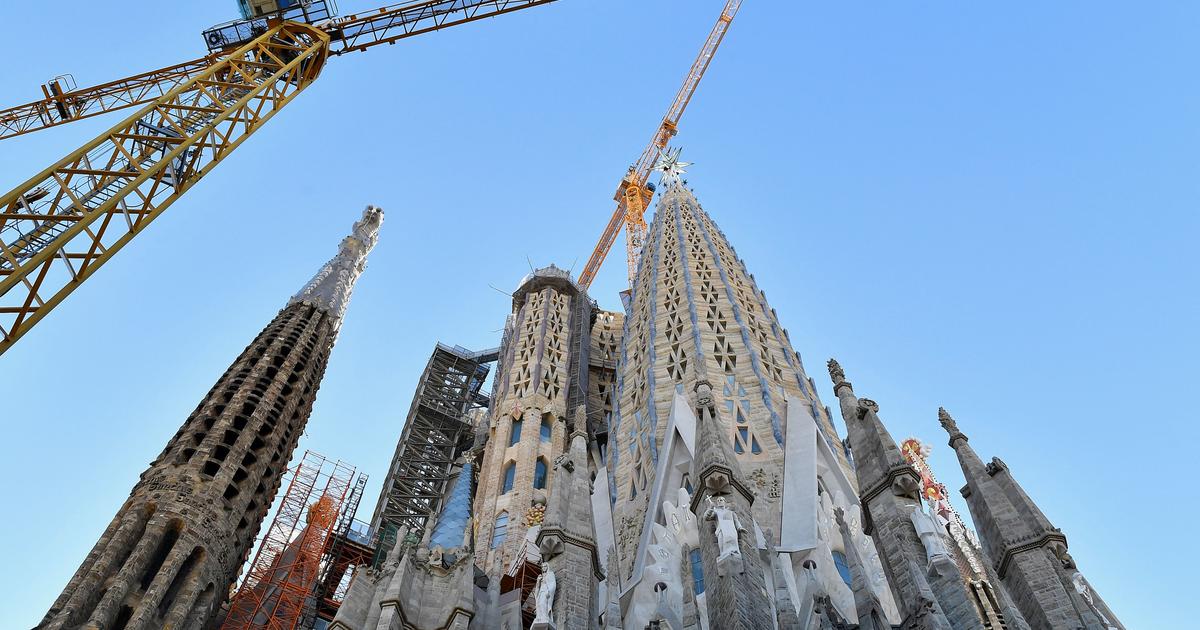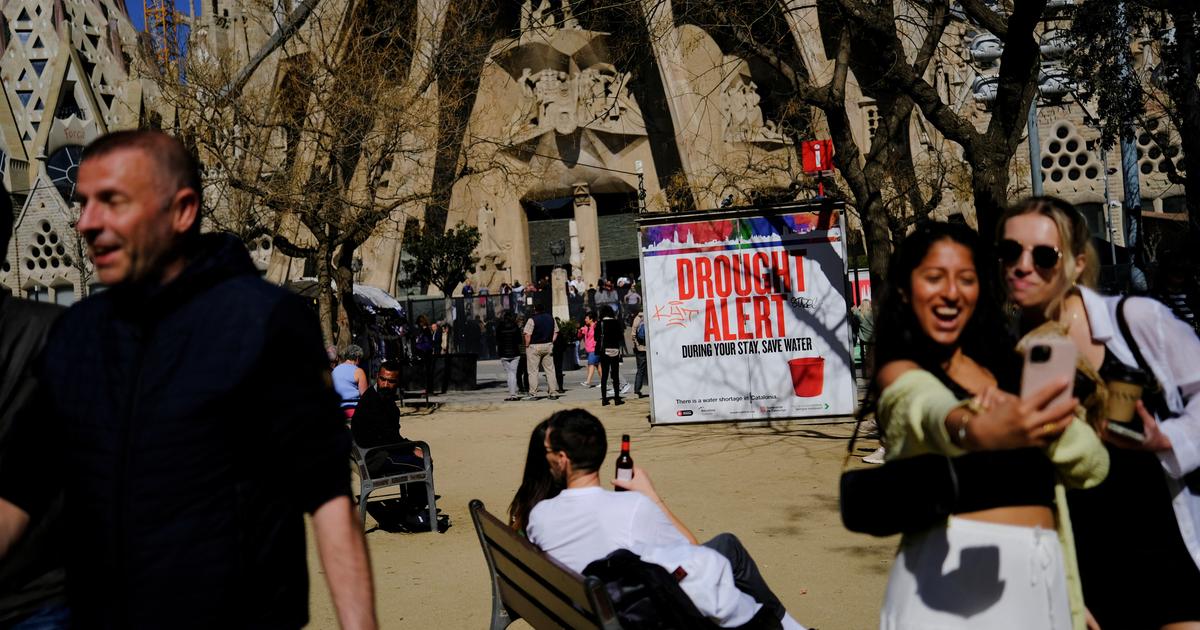On July 25, 2014, with a few hours left to finish the day and even fewer days to take a vacation, an email arrived in my inbox.
I don't remember who sent it, but I imagine some lawyer thought it was a good idea for me to read it.
It was not one of those absurd communiqués that one deletes without having read it, almost angry.
It was signed by Jordi Pujol i Soley.
I got alert.
He was aware of the information from the previous days about alleged bank movements of the Pujol family in Andorra.
He knew about the investigation open to the eldest son, alias
Junior
, for his shady deals.
And, despite everything, after a first hasty reading I did not understand what was at stake.
Pujol spoke of an undeclared inheritance that his children had received and asked for forgiveness.
It was all so amazing that it was hard for me to understand that I was facing a historical confession that was going to change, forever, the perception of one of the most relevant characters in the contemporary history of Catalonia, always unfathomable despite all the efforts to explain it to him.
It has reassured me to know, from
La Sagrada Familia
—the monumental fresco about the Pujols directed by David Trueba that HBO Max premieres this Thursday (the first episode will be seen openly on DMAX this Thursday at 10:30 p.m.)— that I was not the only one who The bombshell news hit
him
indigestible
.
) in his political career.
The documentary suggests that this stain is indelible and, above all, it reminds us that Pujol's figure began to get dirty much earlier, only then almost nobody knew how to locate or see the stains: the series reviews with impeccable rigor the decapitalization of Banca Catalana, that he was about to take him to court, or the shady deals of his wife, Marta Ferrusola, and many of his children, all of them issues that hovered over the Pujol presidency almost since his first term, in 1980.
More information
The judge sends Jordi Pujol and his seven children to the bench for the family corruption plot
Trueba's series outlines the spirit of an era, explores a certain way of understanding power and, above all, dissects the biography of an unusual family, with a married couple of three (Jordi, Marta and Cataluña) who tried to perpetuate themselves as a dynasty .
In a time of fragile memory,
La Sagrada Familia
has the virtue of revisiting the Pujol myth with a generous display of archival images that seemed forgotten and that, in the light of new times, allow for a curious reinterpretation.
The legends that have marked his career—such as the one that maintains that, as a child, he felt the impulse to rebuild Catalonia from the top of Tagamanent— are exposed to criticism from journalists in a work that obsessively analyzes the figure of Pujol without completely clear up the mystery.
The former president continues to escape, somehow, the most thoughtful analysis.
José María Aznar, at a time during the recording of the documentary series.
The great virtue of the team led by Trueba is having achieved that people who walked alongside Pujol in the fight against Franco and who accompanied him during his long career in the Government as allies or as rivals (or both at the same time) have agreed to throw back view.
The appearance of former presidents Felipe González and José María Aznar gives cachet.
The rich and clear exposition of a cast of first-class journalists keeps the story alive and allows a clear understanding of a complex web of events.
But there are two characters from the dark side of the force that raise the level of intensity by one point.
Josep's self-confidence
My favorite is Josep Pujol Ferrusola, the only member of the family that appears in the series.
The third son of the
former president
reveals himself as a master in front of the screen and gives away some of the most succulent moments.
He had already given signs of his self-confidence in the investigation commission of the Catalan Parliament on the
Pujol case
, where he said (the Pujols are beasts to give birth to famous or unfortunate expressions, depending on how you look at it) that of “
jo als 30 anys ja was riquet
”.
I mean, a little rich.
But not much.
With ease, Josep (metaphorically) opens the doors of the family home, in the General Miter ring road in Barcelona, to explain to us the austere manners of a family ruled by the mother and with an absent father, and where most days are spent. He had French omelette and fried hake for dinner.
And to clarify that in a large family, with seven children, many families fit because the affinities are also generational.
Pujol's other bulwark at
La Sagrada Familia
is Lluís Prenafeta, convicted of urban corruption in the
Pretoria case
and who was Pujol's right-hand man when he became president of the Generalitat.
According to all the voices that appear in front of the screen, Prenafeta was at the same time a solver of problems and a grim reaper of the darkest aspects of pujolismo.
He denies everything and praises Pujol without a hint of criticism, of whom he says, in a delicious slip that the editors have done well to maintain: “He knew Catalonia as if it were his pocket;
rather, his hand ”.
But that he has agreed to give his version is further proof of the global ambition of a series that has not wanted to leave anyone behind or anything to explain.
Jordi Pujol, Marta Ferrusola and their seven children.
And, despite everything, there are questions that remain unanswered.
For
pujólogos
, professionals or amateurs, and for those of us who have thoroughly examined the
Pujol case
,
La Sagrada Familia
hardly brings any news.
The viewer will continue without knowing for sure what the true origin of the Andorran fortune is.
Or what is true in the
deixa
(inherited) from grandfather Florenci.
Or if the family got rich with Banca Catalana.
Or if Pujol fabricated (or allowed, or tolerated) the political corruption with which, presumably, his children enriched themselves.
In any case, it would be asking too much, because not even the judicial investigation has been able, to date, to prove it reliably.
But the viewer who is not a freak on the subject will find overwhelming clarity and careful preparation in a series that looks like a political
thriller
, with suspenseful endings and glorious beginnings of chapters.
Like when Hristo Stoickhov calls Pujol "our king of Catalonia" and makes him jump, on the balcony of the Palau de la Generalitat, during the celebration of a Barça title.
The Sagrada Família
is not a
damnatio memoriae
of Pujolismo.
Neither is a hagiography.
Without the paternalism of the voice-
over,
it is the witnesses (journalists, writers, prosecutors, politicians, friends, enemies) who point out what seems salvageable or not to them about the inheritance.
To Pujol's credit is above all his role as an anti-Franco fighter, although even here a certain ambiguity is perceived: behind the
fets of the Palau
, Pujol waits at home to be arrested and goes to prison, convicted by a court martial.
How far does conviction go and how far does political calculation go?
With him you never know.
His time at the head of the Government (from 1980 to 2003) also deserves praise, although the light he projects as the architect of modern Catalonia is dimmed by the shadows of a corruption that flourished, it is not clear to us whether due to his drive or mere carelessness, in your family.
“I am not a corrupt politician!”, He claims whenever he can a former president who made ethics his flag and who fell from the pedestal because of ethics.















